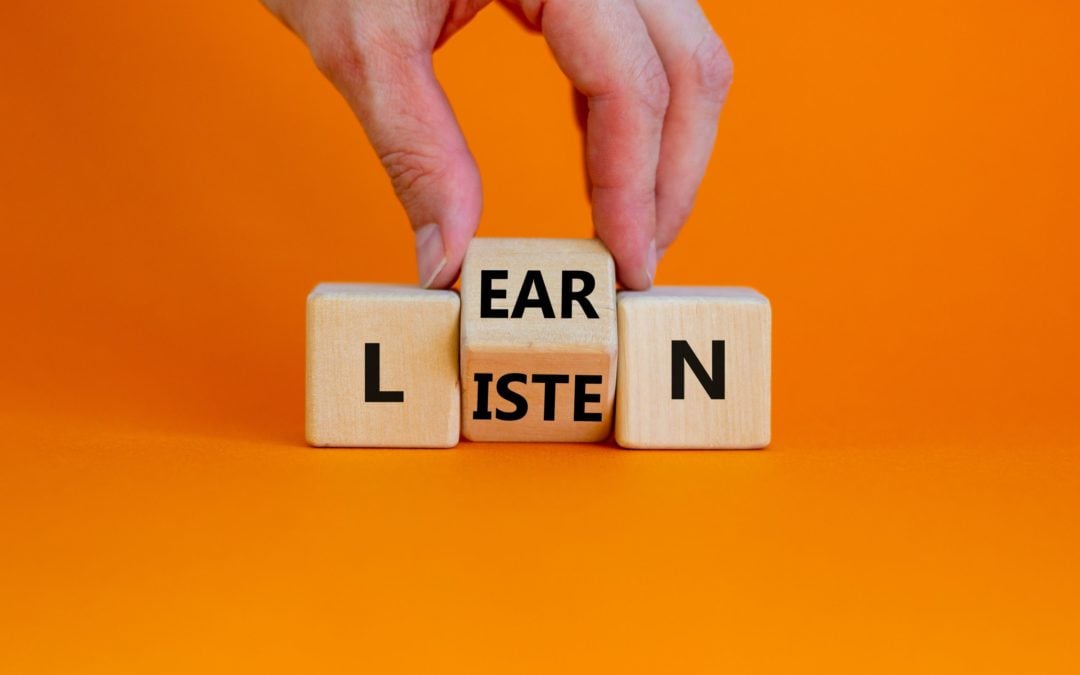Listening, Not Hearing
As we return to trade show floors, distractions on a show floor are many – hearing is hard enough, but listening is much harder. Listening skills, like all communication skills, can be constantly developed and improved. Too often, salespeople launch into a standard sales pitch first and listen later – when it’s already too late.
To help prospective clients get what they want, you must understand their needs and for that you must listen. Listening strengthens an immediate bond between the salesperson and the buyer. It helps qualify the prospect earlier and allows a salesperson to work efficiently and waste less time on the show floor. Neither buyer nor seller needs to prolong an unequal match.
Strategizing your Listening Techniques
Here are some general guidelines to help improve listening skills:
- Don’t formulate a response until your customer is finished speaking.
- Pause and count to three before you respond or ask your next question.
- Try to maintain eye contact at least 50 percent of the time.
- People think and process almost five times faster than they speak. Don’t drift – concentrate on the conversation.
- Take notes on the most important points of the conversation.
- Periodically review what has been said, confirming accuracy.
- Display interest in your customer. Draw out his or her opinions and interests before you convey yours.
- Don’t fill in all the silent periods in the conversation
Show floor attendees today have crushing schedules. While from the sales point of view a long leisurely conversation seems justified, the fact that you can put the client at ease by listening and allowing them to move on will be greatly appreciated. Your next contact, notes in hand, should cement the deal!











